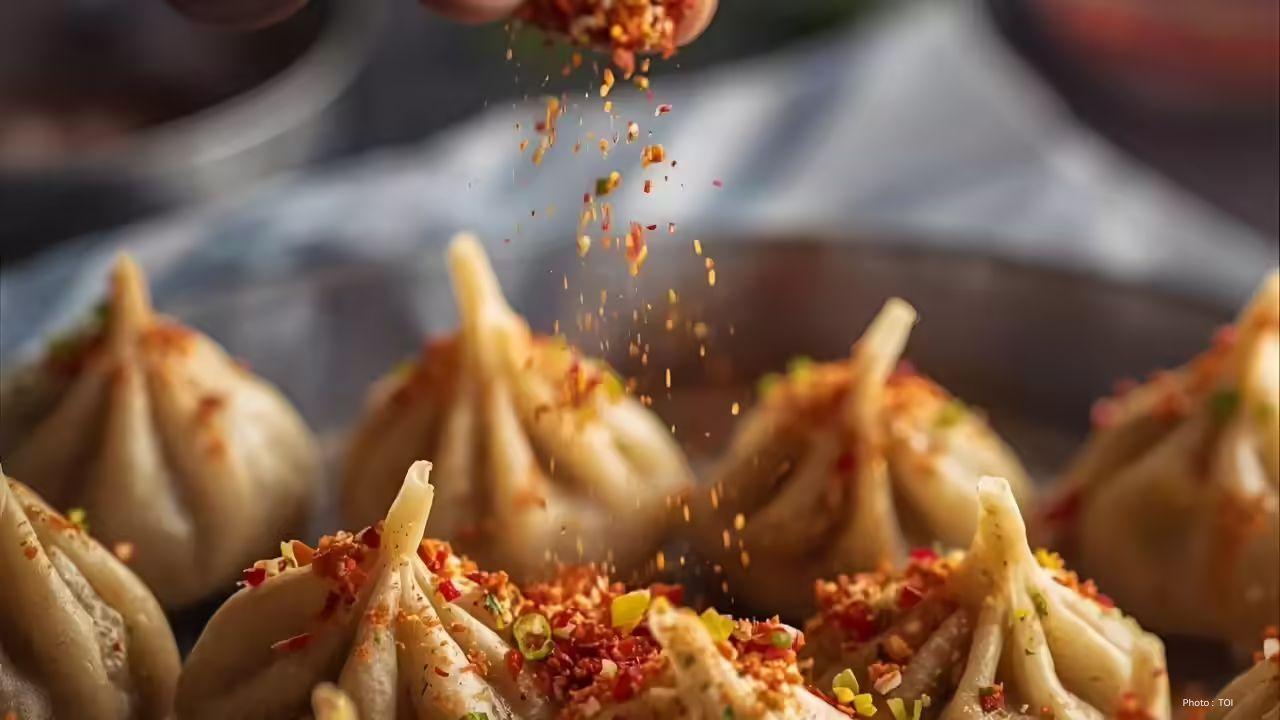You have not yet added any article to your bookmarks!

Join 10k+ people to get notified about new posts, news and tips.
Do not worry we don't spam!

Post by : Saif Rahman
Chaat masala is a staple seasoning across Indian street food and home kitchens, brightening everything from fresh fruit to fried snacks. Its tart, salty and spicy profile makes it a go-to finish for many dishes. Yet dietitians and doctors caution that frequent use of commercial blends can carry health downsides—especially when consumed in large amounts.
This spice mix typically combines several bold flavours: black salt (kala namak), roasted cumin, dried mango powder (amchur), coriander, powdered ginger, red chili and sometimes added citric acid. Together these ingredients create the characteristic tangy, slightly sulfurous note that defines chaat masala.
While individual components like cumin or ginger may aid digestion, the concern lies mainly with how much salt and acidic agents are included in many packaged preparations.
Health experts point to frequent, heavy use of chaat masala as a potential problem. The main culprit is the high sodium load from black salt and added table salt in many commercial blends.
Raised Blood Pressure:
Sodium encourages the body to retain fluid, increasing the volume the heart must pump and potentially elevating blood pressure over time, which strains arteries and the cardiovascular system.
Gastric Irritation:
Ingredients such as black salt and amchur have acidic qualities that can trigger heartburn, reflux or discomfort in people prone to gastric sensitivity when consumed frequently.
Increased Thirst and Dehydration:
High-salt seasonings can make you feel thirsty and, without adequate fluid intake, contribute to dehydration.
Kidney Load:
Regularly consuming extra sodium and mineral content forces the kidneys to work harder to maintain balance, an issue for those with existing renal or cardiac conditions.
Added Chemicals:
Many store brands may include preservatives, colourants or flavour enhancers that are best avoided if eaten routinely.
Most nutritionists agree that a light sprinkle of chaat masala on occasion is unlikely to harm healthy individuals. Using it sparingly on fruit or a snack once or twice a week is generally acceptable.
But habitually seasoning multiple meals can push daily sodium intake beyond recommended levels. The World Health Organization (WHO) advises keeping sodium under 2,000 mg per day—roughly one teaspoon of table salt. A teaspoon of many chaat masala blends can provide a substantial fraction of that amount.
Remember that many processed foods—chips, pickles, sauces and instant products—already contain significant salt. Adding chaat masala on top increases cumulative sodium, raising risks linked to hypertension and heart disease over time.
Making your own mix lets you control the salt and avoid unnecessary additives, while still keeping the lively taste.
Simple Homemade Recipe:
2 tbsp cumin powder
1 tbsp coriander powder
1 tbsp dried mango (amchur) powder
½ tsp black salt (use less if you prefer)
½ tsp chili powder
A pinch of hing (asafoetida)
Blend the spices and store in an airtight container. This version reduces sodium and eliminates artificial additives found in some ready-made mixes.
Dietitian Dr. Ritu Sharma notes that "the issue is frequency and portion size rather than the spice itself—occasional use is fine, but daily heavy sprinkling can quietly elevate blood pressure and upset digestion."
Cardiologist Dr. Vivek Menon adds that "excessive sodium is a leading, preventable contributor to heart disease in India; condiments and spice mixes are often overlooked sources of that salt."
Limit use to occasional servings rather than every meal.
Don’t add it to foods that are already high in salt.
Maintain good hydration to offset extra sodium.
Prefer homemade blends or choose low-sodium commercial options.
Read labels and avoid mixes with unnecessary preservatives or MSG.
Chaat masala can brighten food and stimulate the appetite, but moderation is essential. Treat it as an occasional accent rather than a daily condiment to protect your heart, digestive system and kidneys.
With mindful use—or a simple homemade recipe—you can enjoy the distinctive tang without compromising long-term health.










EU-India Free Trade Deal May Be Signed This Month, Says Merz
German Chancellor Merz hints at a possible EU-India free trade agreement signing by January end afte

Japan Expands Security Aid Across Southeast Asia with $147M Boost
Japan doubles OSA budget to $147M, expanding military support to ASEAN nations, boosting regional se

Eruption of Mount Semeru: Pyroclastic Flow Extends 5 km, Ash Clouds Reach 2 km
Mount Semeru erupted at 10:25 p.m., producing a 5 km pyroclastic flow and a 2 km high ash column. Re

Deadly Bushfires in Victoria Leave One Dead, 300 Structures Lost
Bushfires across Victoria have destroyed hundreds of homes, claimed one life, and forced evacuations

Himalayas Turn Rocky as Winter Snowfall Falls, Scientists Warn
Himalayas see record low winter snow, accelerating glacier melt and threatening water supply, forest

Virat Kohli Fastest to 28,000 Runs, Celebrates Career Milestone
Virat Kohli reached 28,000 international runs, reflecting on his journey with gratitude, joy, and de